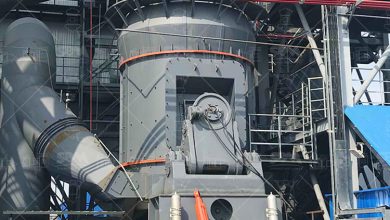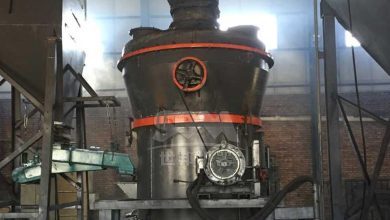Light Burning Magnesite: Pioneer in Green Transformation and Innovative Application of Eco-Friendly Grinding Mills
Introduction
The magnesite industry is undergoing a significant transformation driven by the global push for sustainability and environmental responsibility. Light burning magnesite, a key material in refractory, chemical, and agricultural applications, requires advanced processing technologies to meet stringent quality and environmental standards. This article explores the innovative approaches and technologies that are revolutionizing the production of light burning magnesite, with a focus on eco-friendly grinding solutions that enhance efficiency, reduce energy consumption, and minimize environmental impact.
The Importance of Green Transformation in Magnesite Processing
Magnesite processing has traditionally been associated with high energy consumption and significant environmental footprint. The calcination and grinding stages are particularly energy-intensive, contributing to high operational costs and carbon emissions. However, with the advent of green technologies, the industry is shifting towards more sustainable practices. The integration of advanced grinding mills not only improves product quality but also aligns with global environmental standards, making it a critical component of the green transformation in the magnesite sector.
Innovative Grinding Technologies for Light Burning Magnesite
The grinding process is crucial in determining the quality of light burning magnesite. Traditional grinding methods often result in inconsistent particle size distribution, high energy consumption, and excessive wear and tear on equipment. Modern grinding mills address these challenges through innovative designs that prioritize efficiency, precision, and sustainability.
Key Advancements in Grinding Mill Design
Contemporary grinding mills incorporate several technological advancements that enhance their performance and environmental compatibility. These include intelligent control systems for automatic adjustment of grinding parameters, high-precision classifiers for uniform particle size distribution, and durable components that extend equipment lifespan. Additionally, eco-friendly features such as pulse dust collectors and noise reduction technologies ensure compliance with international environmental regulations.
Recommended Product: SCM Ultrafine Mill
For processing light burning magnesite to ultra-fine specifications, the SCM Ultrafine Mill stands out as an exemplary solution. This mill is designed to achieve a fineness range of 325-2500 mesh (D97 ≤5μm) with exceptional efficiency and minimal energy consumption. Its core advantages include:
- High Efficiency and Energy Savings: With a capacity twice that of jet mills and energy consumption reduced by 30%, the SCM Ultrafine Mill significantly lowers operational costs.
- Precision Classification: Equipped with a vertical turbine classifier, it ensures accurate particle size cut-off without coarse powder contamination.
- Durability and Stability: Specialized materials for rollers and grinding rings extend service life, while a bearing-free screw grinding chamber enhances operational stability.
- Environmental Compliance: The integrated pulse dust collector exceeds international standards, and the soundproof chamber design keeps noise levels below 75dB.
The SCM Ultrafine Mill operates through a multi-layer grinding ring system driven by a main motor. Material is dispersed into the grinding path by centrifugal force, subjected to roller pressure for粉碎, and finally collected via a cyclone and pulse dust removal system. With models ranging from SCM800 to SCM1680, it offers processing capacities from 0.5 to 25 tons per hour, making it suitable for various production scales.

Another Recommended Product: MTW Series Trapezium Mill
For coarser grinding requirements of light burning magnesite, the MTW Series Trapezium Mill is an excellent choice. It handles input sizes up to 50mm and produces fineness between 30-325 mesh (up to 0.038mm), with capacities ranging from 3 to 45 tons per hour. Key features include:
- Anti-Wear Shovel Design: Combined shovel blades reduce maintenance costs, and curved design prolongs roller life.
- Optimized Airflow: Curved air duct minimizes energy loss and improves transmission efficiency.
- Efficient Transmission: Integrated bevel gear transmission achieves 98% efficiency, saving space and installation costs.
- Durable蜗壳Structure: Non-clogging design enhances air classification efficiency and reduces maintenance by 30%.
The MTW mill works by having the main motor drive磨辊to revolve around the central axis while rotating itself, generating centrifugal force. Shovels throw material between the grinding ring and rollers for efficient粉碎, with a classification system ensuring precise particle size control. Models like MTW110 to MTW215G cater to diverse production needs, supported by patented technologies such as internal oil lubrication and advanced pulse dust removal.

Applications in Light Burning Magnesite Production
The application of advanced grinding mills like the SCM Ultrafine Mill and MTW Series Trapezium Mill in light burning magnesite production brings numerous benefits. They enable the achievement of consistent particle size, which is critical for the material’s performance in refractory products. Moreover, their energy-efficient operations reduce the carbon footprint of magnesite processing plants, contributing to sustainability goals. The eco-friendly designs also ensure a safer working environment by minimizing dust emissions and noise pollution.
Conclusion
The green transformation of the magnesite industry is imperative for its long-term viability and environmental compliance. The adoption of innovative grinding technologies, such as the SCM Ultrafine Mill and MTW Series Trapezium Mill, plays a pivotal role in this transition. These mills not only enhance product quality and operational efficiency but also demonstrate a commitment to sustainability. As the industry continues to evolve, investing in such advanced equipment will be key to maintaining competitiveness and meeting the growing demand for eco-friendly production practices.






